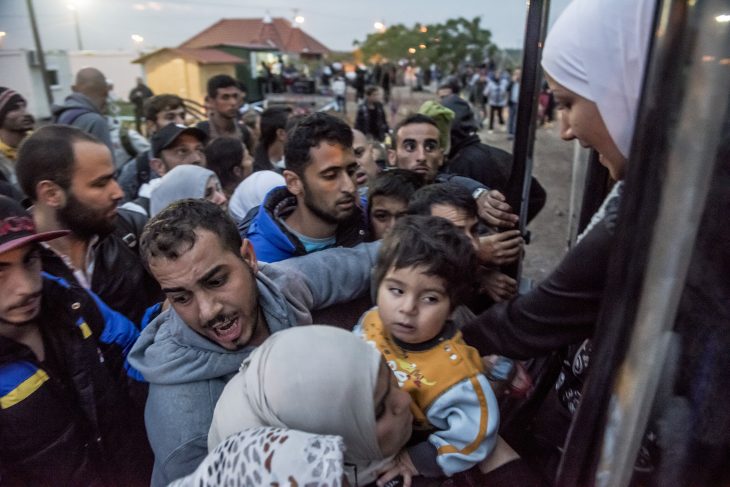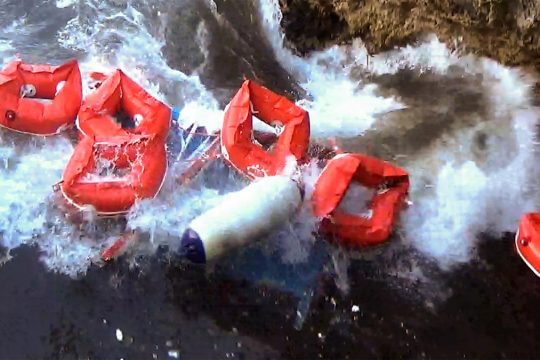As the refugee influx continues unabated, it is gratifying to see that our humanity is finally showing signs of life, thanks to generous German, Serbian, Austrian, Greek, Italian and other European citizens. They follow the proud example of Lebanon, Jordan, Turkey and Egypt. Our leaders are at last heeding what their voters are telling them and starting to question the pandering to anti-immigration voices.
The negative narrative on refugees and migrants is beginning to change, allowing the facts to prevail: there are clear economic and social benefits to those countries receiving migrants. And most European and other developed economies need immigration to meet present and future workforce requirements. This is a positive development, but it is not enough. All countries should contribute towards solving the problem.
In finding the necessary international solution, we can draw on our collective institutional memory. This is not the first time we have faced a refugee exodus of this magnitude. In the 1980s, thousands of Vietnamese boat people took to the seas to reach neighbouring countries and, from there, the US, Canada and other nations. Thousands died, human traffickers made fortunes and the countries of first asylum sealed their borders.
The problem seemed intractable – until enterprising staff at the office of the UN High Commissioner for Refugees (UNHCR) devised a comprehensive plan of action, approved by an international conference in 1989. Bringing together the international community, it created an orderly process that distinguished between and established procedures for asylum seekers and economic migrants. This mechanism successfully resettled thousands of refugees, all of them now productive members of the societies that welcomed them. It is a good example of how things can be done when there is the will and the means to protect and assist in a humane and dignified manner.
For this example to be successful today, we need to:
1. Set up screening centres in transit countries such as Turkey, Greece, Italy, perhaps Tunisia and potentially Libya, when conditions permit, with the UNHCR and International Organisation for Migration (IOM) handling the refugees and migrants. Universally agreed procedures to establish refugee status, resettlement and the return to countries of origin of economic migrants should be respected throughout.
2. Step up temporary search and rescue capacity in the Mediterranean.
3. Co-ordinate robust programmes to apprehend people smugglers.
4. Negotiate agreements with countries of origin of those determined economic migrants for their safe return and reintegration, where possible.
5. Fund these measures on a global level and assist with meeting the costs of primary receiving countries such as Lebanon, Jordan, Turkey and Greece, as well as funding more targeted development interventions in the countries of origin.
6. Initiate information campaigns aimed at potential asylum seekers and economic migrants, explaining the procedures that are in place and the risks inherent in taking to the roads.
7. Change the negative narrative in receiving countries based on social and economic facts.
These actions may prove that enlightened self-interest, humanity and international solidarity can produce a win-win outcome. But this will only address the current temporary spike in refugee numbers. We need to deal with the much broader, long-term migratory trend.
At the operational level, the agencies that manage asylum and migration issues are overwhelmed and underfunded. At the policy level, apart from the loosely organised Global Forum on Migration and Development, there is no formal international structure to provide options for future flows of the victims of man-made or natural (read climate-related) disasters, both of which will define our daily lives far into the future.
In the absence of such a body, we need to give Sir Peter Sutherland, the UN secretary-general’s special representative for migration and development, the mandate and wherewithal to catalyse action. One way to start the process may be to decide on greater integration of the work of UNHCR and IOM, and allowing them to propose new long-term global policies. The humanitarian summit in Istambul next year, the meeting called by the UN secretary-general in New York in September and the November meeting in Valletta between the heads of state of Europe and Africa are opportunities to move this forward.
Critically, we need to recalibrate the relationship between development aid and humanitarian assistance, with aid better addressing the root causes of humanitarian problems. The high commissioner for refugees António Guterres is a tireless proponent of this thesis. He needs our support.
Finally, we need to capitalise on the policy frameworks the world is adopting this year: the sustainable development goals (SDGs), a climate agreement and the disaster risk reduction agreement. If we successfully implement the 17 SDGs we will stand an immeasurably better chance of dealing with future migratory flows.
Any one of us may one day need refuge. Empathy, generosity and sound policies today will greatly improve the chances of the same being applied to our calamities tomorrow.






